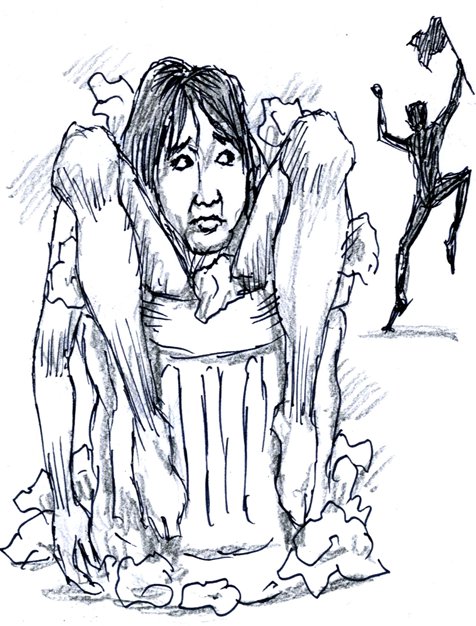
Illustrations: Peter C. Espina/GT
The latest display of patriotism saw young Chinese putting their country before South Korean idols.
Taeyeon, a member of South Korean K-pop girl group Girls' Generation, recently drew the ire of many Chinese netizens after she posted a picture of and expressed her fondness for a Lotte brand candy on her Instagram.
At a sensitive time when China and South Korea are locked in a standoff over the deployment of the Terminal High Altitude Area Defense (THAAD) missile defense system and the Chinese public has launched a boycott campaign against the Lotte group which offered its land for the THAAD installation, Taeyeon's post was considered as support for Lotte by many Chinese netizens.
Choi Si-won, another South Korean pop star, lost tens of thousands of fans overnight on China's Sina Weibo because he "liked" Taeyeon's post. "I like you, but I love my country more," many fans commented on Choi's Weibo account.
Since tension between China and South China over the THAAD deployment began to simmer last year, some Chinese fans have decided to give up their love for their Korean idols and to boycott Korean culture. Still, there are hardcore supporters choosing to stick with their beloved idols. However, in a social atmosphere that is increasingly hostile toward South Korea, it's impossible for them to express the love for their idols.
As South Korea stubbornly pushes ahead the deployment of THAAD, which will impair China's national security interest, the Chinese public is unlikely to silently accept the move. The enthusiasm of the young Chinese people for Korean stars and cultural products will gradually diminish. The phrase of "No idols before country" conveyed Chinese netizens' sentiment that there is no place for idolization of Korean stars when it comes to patriotic love.
However, many foreign observers downplayed the spontaneous patriotism of the Chinese public. They attributed the ongoing boycott against South Korea to a top-down campaign.
The patriotism of the Chinese public, especially the youth of the country, cannot be underestimated. In recent years, the Chinese public has raised their expectation on domestic stars when politics is involved. Celebrities and their works were boycotted when they harm national interests.
For instance, actress-turned-director Vicki Zhao's new film was boycotted last summer after it was reported that she cast a Taiwanese actor who is believed to be a supporter of Taiwan independence in the lead role. Zhao had to replace the controversial actor under extreme pressure from the public.
Diba, a mainland-based online group with more than 20 million followers on Baidu, most of whom were born in the 1990s, bombarded then Taiwan's "president-elect" Tsai Ing-wen's Facebook page with posts warning the island against declaring independence in January, 2016. This episode showed an undercurrent of patriotism that young Chinese wouldn't hesitate to express their support for the country whenever it faces great threats.
The author is a reporter with the Global Times. opinion@globaltimes.com.cn Follow us on Twitter @GTopinion

